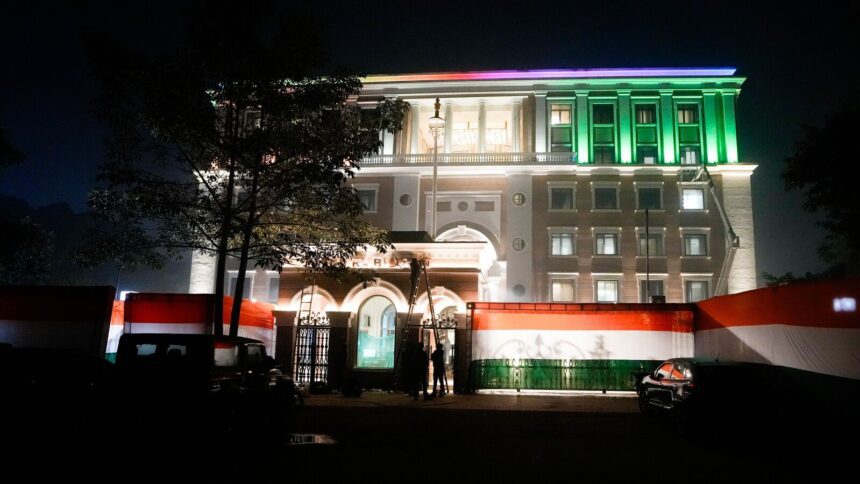The Evolving Landscape of Indian Politics: Highlights from January 15, 2025
In an era marked by rapid political shifts and intense discourse, January 15, 2025, stands out as a pivotal day in Indian politics. From the Congress party’s significant transition to reports of escalating tensions between major political figures, today’s events reveal a landscape that is at once dynamic and deeply complex. Here’s a closer look at the latest developments that are shaping the political discourse in India.
Congress Party Moves to Indira Gandhi Bhawan
The Congress party has officially made its move to the newly established Indira Gandhi Bhawan, as it bids farewell to its historic headquarters at 24, Akbar Road after an impressive tenure of 47 years. This transition symbolizes not just a change of address but raises critical questions about the party’s future as it prepares for upcoming elections. The move to Indira Bhawan comes with the dual challenge of modernizing its image while staying true to its legacy, particularly amidst the current political climate where it faces fierce competition, notably from the BJP.
Tensions Flare: JP Nadda vs. Rahul Gandhi
In the political arena, BJP President JP Nadda has issued a sharp rebuttal to Congress leader Rahul Gandhi’s assertions regarding his efforts in "fighting the Indian state." Nadda’s comments allude to Gandhi’s alleged connections with Urban Naxals—a term that has become increasingly politicized and controversial over the years. This exchange underscores the deepening divides between India’s two prominent political factions and raises issues of accountability and integrity in leadership.
Rahul Gandhi Responds to Mohan Bhagwat
The discourse heated further when Rahul Gandhi openly criticized RSS chief Mohan Bhagwat for his remarks linking the upcoming Ram Mandir ceremony to India’s "true independence." Gandhi characterized Bhagwat’s statements as treasonous, arguing that they diminish the significance of India’s hard-fought 1947 independence. This conflict not only highlights ideological divides within the country but also calls into question the narratives that political leaders promote regarding India’s history and values.
Justin Trudeau’s Political Landscape
Shifting focus internationally, former Canadian Prime Minister Justin Trudeau’s political aspirations have garnered attention as he considers stepping away from his role. Mark Carney, the former governor of the Bank of England and the Bank of Canada, is rumored to be contemplating a bid for leadership of the Liberal Party. As Canada navigates its own political transitions, the implications of these changes could resonate within broader global contexts, reflecting how democratic leadership is evolving across nations.
Conclusion: A Day of Significant Political Shifts
January 15, 2025, has proven to be a critical day in the annals of political history. The Congress party’s move to Indira Gandhi Bhawan not only signifies a change in physical location but represents the party’s efforts to reclaim relevance in an increasingly competitive landscape. Simultaneously, the exchanges between leading political figures signal heightened tensions that reflect broader societal debates about nationalism, historical interpretation, and leadership integrity.
As these events unfold, they remind us of the intricate web of connections between various political entities and the importance of staying informed as citizens engage in a rapidly changing political dialogue. The coming days will be crucial for the Congress party, BJP, and the overarching narrative of Indian politics, as each faction responds to the evolving sentiments of the electorate and the shifting tide of political allegiance in the country.










